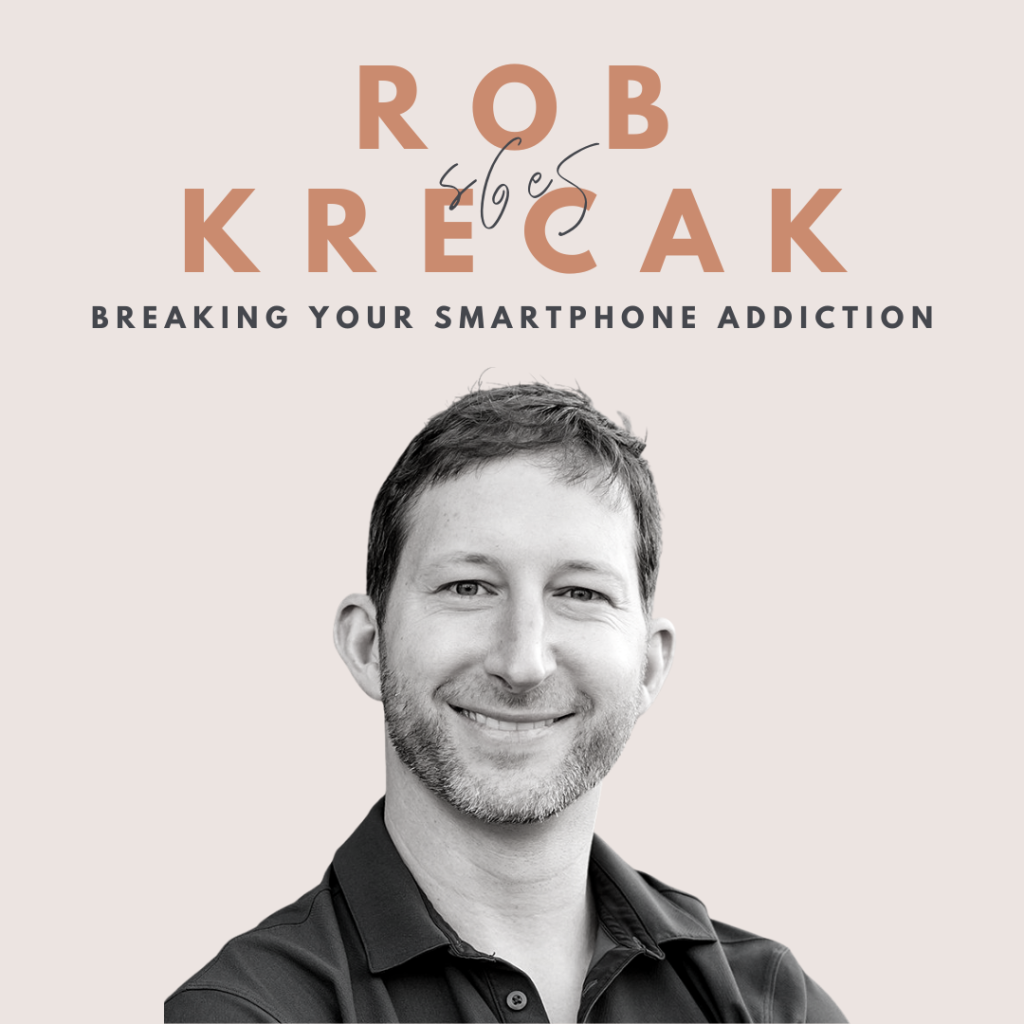Podcast: Play in new window | Download (Duration: 42:12 — 77.3MB)
Smartphones. You gotta love ‘em. You gotta hate ‘em. They’re wonders of technology that far outperform anything the crew of the starship Enterprise had in their kit. But their easy access and razzle-dazzle can lure us into wasting hours of our time each day. You can, however, break the smartphone habit and develop a more productive relationship with technology in general.
In this podcast, Erin talks with Rob Krecak, founder and Chief Connect Officer of Humans First. Rob has spent much of his career focused on how technology affects humans, in ways good and bad, emotionally and physiologically. He encourages users to assert control over their devices using what he calls “technology mindfulness.”
The technology is not going away. In fact, it’s only becoming more pervasive. So the answer is not to ban or blame the technology. “I’m not anti-technology,” Rob explained. “I’m pro-humanity.”
Rob pointed out that devices are only tools. Their use can be either positive or negative, depending on how they are utilized. He wants people to understand how the technology affects them so they can be more in control and more intentional in how and when they use them.
A good example is social media. Its business model is built on attracting and retaining users in order to draw more viewers to ads or gather their data to sell. Rob stated, “Human time and attention is now the most valuable asset in the world.” Social media companies like Facebook and Instagram have tens of thousands of highly smart and talented employees working every day to try to keep users on their platforms as often as possible for as long as possible.
Some time ago Rob wrote an article entitled “Eight reasons why social media is the new cigarette,” in which he described how what happens in the brain when you use social media is very similar to what happens when you smoke. They both release chemicals related to addiction.
The antidote to social media and other forms of technology addiction, offered Rob, is to be deliberate and intentional in your use. Ask yourself, how does social media serve you in your life?
For example, Instagram can be a great platform for growing your business, but it can also turn into a counterproductive time-suck if you allow yourself to get caught up with checking people’s photos and videos. Decide in advance what you want to do on Instagram to promote your business, execute it, and then close the app and put down the phone or tablet.
Erin, who has been working with Rob to overcome her own smartphone and iPad addiction, said that she really was amazed when she started checking her screen time and the screen time for her kids. Rob has helped her to set up rules and and boundaries around her usage, starting with cutting back one hour a day. That’s time you can put to better uses, such working on a meaningful project, exercising or spending more time with family and friends.
For more practical advice on how to cut back on your device use time and learn why Rob has made it mission to put humans first, listen to the entire podcast.
If you’re listening on your favorite podcast platform, view the full shownotes here: https://thepearlcollective.com/s6e5-shownotes
Mentioned in This Podcast
To learn more about Rob, his firm, his mission to transition companies to a 4-day work week, and to access his blog, which has dozens of articles about smartphone addiction, burnout, and other human resource topics, go to www.humansfirst.us.
If you’re interested in reading Rob’s article “Eight reasons why social media is the new cigarette,” you’ll find it here: https://www.humansfirst.us/blog/eight-reasons-why-social-media-is-the-new-cigarette
To check the screen time on your smart device, go the Settings app. On an iOS device, scroll down to Screen Time and click active Screen Time tracking or, if activated, to see your usage. On an Android device, scroll down to Digital Well-being and Parental Controls, then toggle on Daily device usage.
